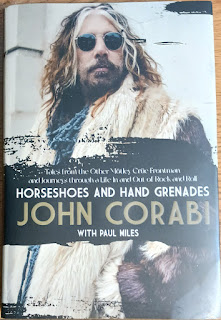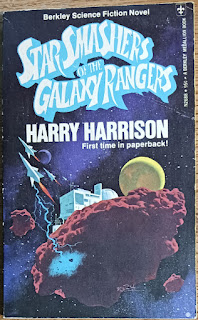With a title like Star Smashers of the Galaxy Rangers
(SSGR), you might assume this book is space opera. It’s not. It’s a parody of
space opera, which is horse of a different color. Specifically, it seemed to
parody most the work of E.E. Doc Smith in his “Lensman” series, which,
admittedly, is not the best space opera ever written.
To me, Space Opera and Sword & Planet fiction (like John
Carter of Mars) are the purest forms of sheer entertainment out there. They do,
however, contain certain tropes that invite some writers to lampoon them. That
doesn’t mean the lampooning works.
Harry Harrison (born Henry Maxwell Dempsey, 1925-2012), who
wrote SSGR, was a talented writer. He’s best known for his “Stainless Steel
Rat” stories but I’ve generally preferred other works of his, including “Make
Room, Make Room,” which became the basis for the movie Soylent Green,
and the Deathworld stories.
However, humor is difficult to write for even the most talented
author. In my opinion it’s the most difficult emotion to create in
writing. And I, personally, am pretty difficult to please on the humor front. I
like humor in my fiction. Just not all humor all the time. I prefer dark humor,
and humor when it comes out of the circumstances and the characters. I don’t
generally like it when it’s layered on with a spatula and drowns every line.
While I chuckled here and there through SSGR, I didn’t get
any belly laughs and I pretty quickly became bored. I mostly sped-read the last
100 pages. Too often, humor turns characters into caricatures. It defuses
tension in order to get in a zinger. It becomes predictable because you know
the writer is going to choose the most ridiculous option in any situation. It
also makes it difficult to maintain any suspension of disbelief in the actual
story. And primarily, it is the “story” that I want when I read. The story in SSGR was weighed down by so many
stabs at humor that I just couldn’t get into it.
SSGR is a well written parody. If you like such pieces
you’ll probably like this one. I didn’t care much for it and was rather happy
when I was done so I could move on to a different book. Of course, please
remember that these are my opinions and your own might differ.


